Source Code Management Redefined: 10 Cracking Bitbucket Alternatives in 2025

Sorry, there were no results found for “”
Sorry, there were no results found for “”
Sorry, there were no results found for “”
There are absolutely no words to describe the panic that ensues following irreparable coding mistakes. In fact, for many coders, accidentally deleting a block of code has to be one of their worst nightmares. ?
Luckily, code repositories have been a game-changer for protecting the integrity of your work, thanks to options for secure code hosting and version control.
Bitbucket is a popular web-based repository hosting service for version control, catering to source code developers and, in particular, businesses handling private and proprietary code.
While it boasts an array of features, you may want an alternative product for numerous reasons. For instance, you might be looking for a more secure dashboard, or perhaps you need native support for canary deployments and feature flags.
We’ve carefully curated a list of the top 10 Bitbucket alternatives currently available on the market. Explore our mini reviews to find your ideal tool that fills Bitbucket’s gaps and seamlessly aligns with your coding and software development needs.
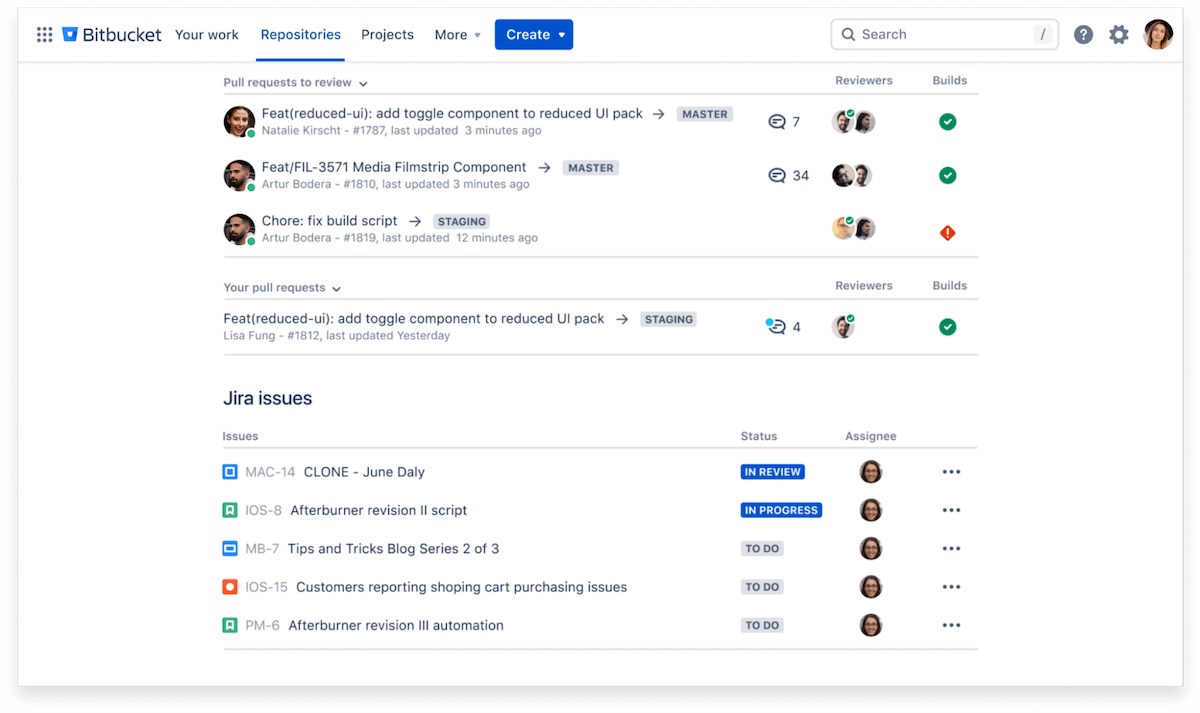
Bitbucket is a scalable cloud-based code repository platform that simplifies code storage, management, and version control. It serves as a centralized hub for overseeing Git repositories, allowing software development teams to contribute, initiate, test, and deploy code efficiently. ??
Developers use repositories like Bitbucket to track, review, and approve changes made by contributors and revert to prior versions if necessary. These tools work by storing not just code but also related assets, such as documentation, tests, and scripts, facilitating team collaboration through more organized workflows.
In general, repositories can be hosted:
A worthy Bitbucket alternative should ideally have the following key features:
Presenting our selection of the top 10 Bitbucket alternatives that provide secure code storage and enable seamless collaboration with your team—let’s take a look! ?

GitHub boasts 100 million repositories and 40 million users worldwide, making it the ultimate hub for source code hosting and Git version control. ?
The platform offers private and public repositories for developers, flaunting options for repository management, code reviews, bug tracking, pull requests, and inline editing with Markdown support. With two-factor authentication enabled, you can keep your files safe from unauthorized access.
The software primarily focuses on public code and is written in Ruby and Erlang language models, providing versatility to developers. It also offers desktop clients for Windows and Mac, seamless integration with popular apps, and Git and SVN (partial) support, making it suitable for both personal and business development projects.
*All listed prices refer to the yearly billing model
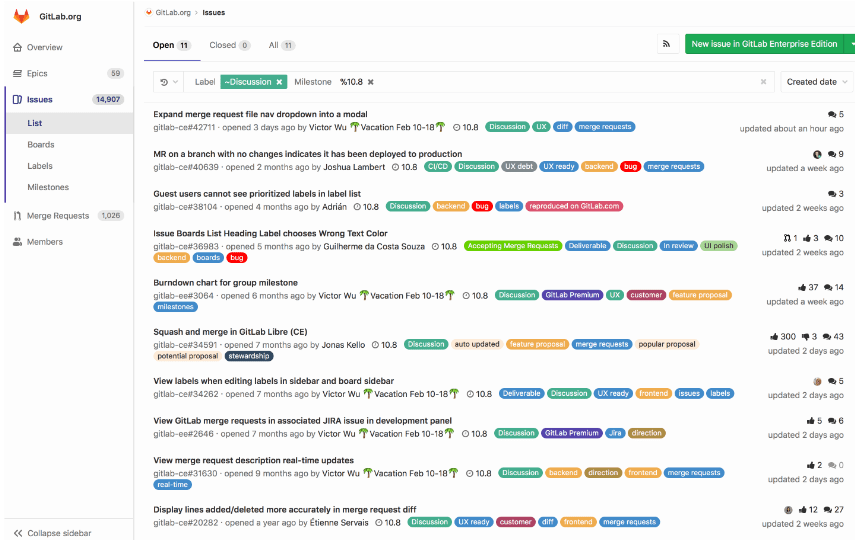
GitLab transforms the way you collaborate and construct software. Built around Git, this open-source web interface uses its own source control system and operates through a single application, aiding teams throughout the entire development process and significantly reducing cycle time.
The platform contributes to cost reduction in the development process and boosts developer efficiency. Plus, it offers a comprehensive DevOps service with native security features, such as container and dependency scanning, license compliance checks, and secret detection. ?
In addition, GitLab boasts versatile deployment options, including self-managed, on-premises, and cloud-based SaaS. The result? You can ensure feature consistency across deployment models, simplifying transitions for customers while keeping functionality intact.
*All listed prices refer to the yearly billing model

Sourcetree by Atlassian is a Git desktop client that streamlines interactions with your code, enhancing repository management through intuitive visualizations. Its user-friendly interface caters to beginners while offering productivity-boosting features for seasoned users.
The platform allows you to effortlessly stay in sync with team updates using its rich branching diagrams. You can cherry-pick across branches, review changesets, and stash code with ease. ?
Thanks to its Git Large File Support, teams can conveniently monitor significant data assets from a centralized location. Sourcetree also simplifies complex distributed version control tasks, helping you efficiently handle larger projects.

Phabricator’s versatile toolset covers software development, sprint management, code hosting, and comprehensive code review. With full support for Mercurial and SVN repositories, it is a scalable, high-speed solution. Phabricator is entirely open-source, which differentiates it from Bitbucket’s enterprise-focused approach.
Within Phabricator, you can conduct code reviews efficiently using Differential, host repositories locally, and keep tabs on those hosted externally. Enhance continuous integration processes through internal chat channels. ?
The platform extends its functionality with source code auditing through Herald, allowing you to initiate audits and track bugs. Additionally, it provides flexibility in addressing bugs through tailored task forms and delegated task management.
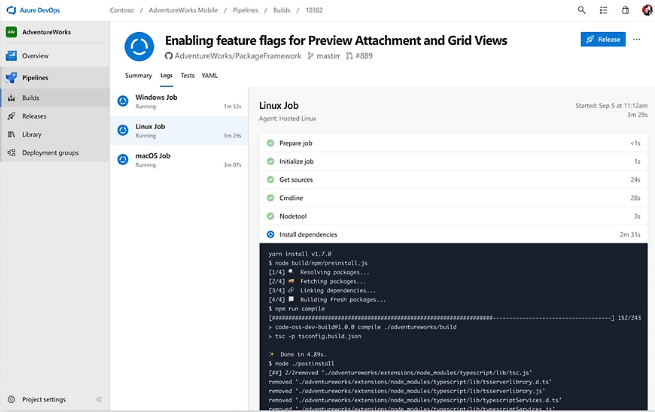
Streamline code sharing, work tracking, and software delivery through Azure DevOps Server’s integrated tools. It’s an enterprise-grade Microsoft server that can serve as an excellent integrated development environment (IDE). ?
It allows developers to plan work, collaborate on code development, and build or deploy applications, encompassing tools like:
Hosted on-premise, Azure DevOps Server facilitates cross-functional teamwork, regardless of project size. Your team would love its collaboration tools like customizable dashboards, built-in wikis, and configurable notifications.
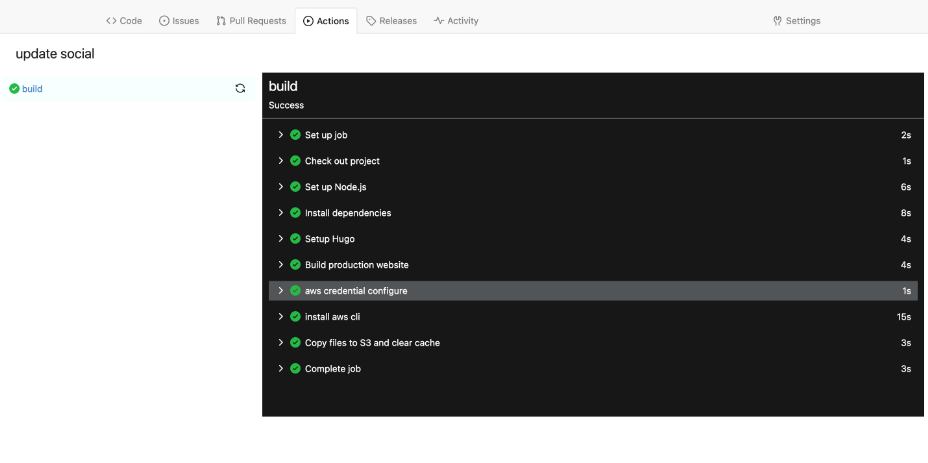
Gitea is a practical gem in the world of Git services. It’s built on the Go programming language, making it lightweight and user-friendly, with the benefit of being released under the MIT license. ?
The primary aim of this open-source platform is to provide users with a quick, straightforward way to establish a self-hosted Git service. Use code hosting for repository creation, coding file management, and branch handling. Review code effortlessly through Pull Request and AGit workflows and manage projects through Kanban boards.
Gitea is compatible with any platform that supports Go. It also boasts easy installation and imposes minimal system requirements, which sets it apart from many competitors.
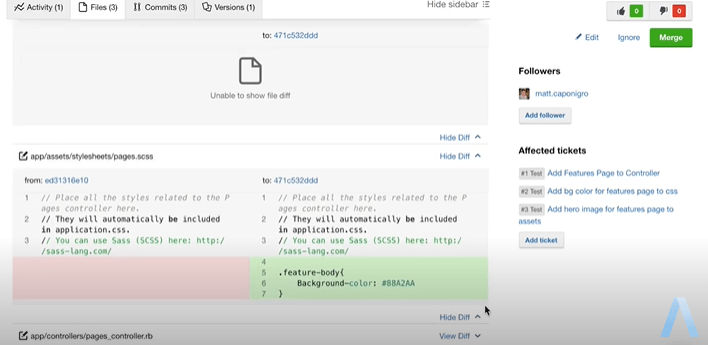
Assembla stands out as a secure project collaboration and version control platform. It safely hosts Git, Apache Subversion, and Perforce repositories in the cloud within a single platform.
The platform’s version control system assists development teams with compliance standards such as HIPAA, PCI, SOC2, and GDPR. Easily navigate compliance within a unified dashboard that manages your source code and open-source projects.
Assembla sets itself apart by being the only platform on our list to offer NextGen SVN. Plus, it enhances user experience with features such as code search, locking, and merge request functions, seamlessly accessible through mobile, desktop, and web applications.
This all is delivered within the secure confines of the SOC2 framework. ?
*All listed prices refer to the yearly billing model
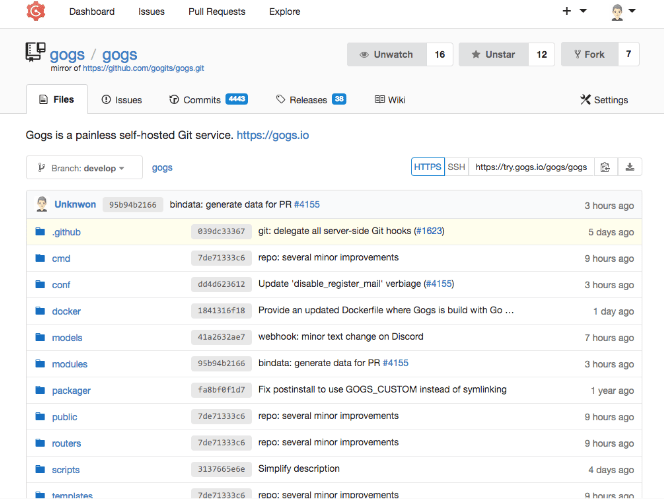
Gogs is a Go-based, open-source Git server designed for self-hosting. It welcomes both public and private repositories, offering a web interface with extensive configuration options. ⚙️
Its unique features include support for SSH keys and HTTP authentication and the ability to manage multiple repositories.
The built-in audit log helps monitor changes to milestones, permissions, and issues, while its integrated wiki has file comparison and syntax highlighting abilities.
The platform’s repository-level access control ensures complete authority over file viewing and modification permissions. Additionally, its issue tracker provides comprehensive tools for tracking bugs and milestones, streamlining project management.
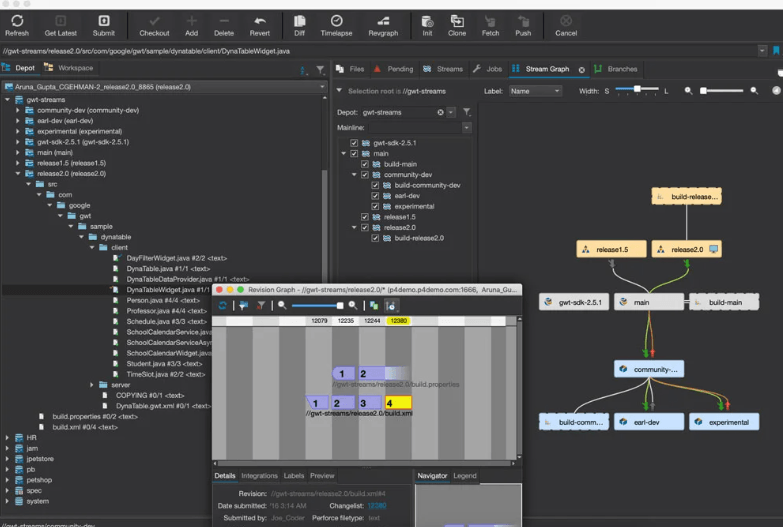
Step into the world of Helix Core, an enterprise-grade versioning engine focused on development collaboration, no matter your team size. ?
This platform simplifies complex workflows for large-scale product development, ensuring faster product creation. Helix Core supports Mercurial repositories and diligently tracks and manages changes to digital assets like code, video, large binary files, and IPs. It also scales endlessly while maintaining top-notch performance.
The platform integrates with your current workflow and toolchain. It works well with Git and offers APIs, so you can connect it with any tool, even if there’s no plugin available.
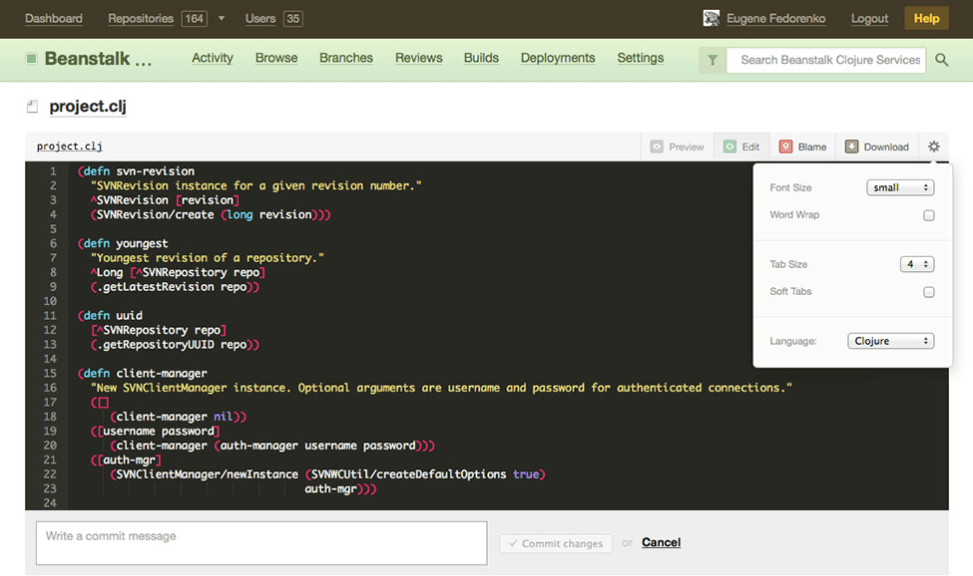
Ascend to new coding heights with the magic powers of Beanstalk. ?
The platform provides a comprehensive workflow, empowering developers to create, review, and deploy code without stressing. This hosted version control service offers support for both SVN and Git repositories.
It’s great for startups and freelancers looking for security features like access and IP restrictions, along with priority support and flexible deployment options.
The Beanstalk code review process is expertly designed to initiate early discussions and seamlessly integrate with your branch, encouraging more input and feedback from your team. You can also check out code review stats to tailor deployment configurations for each environment based on your needs.
While Bitbucket and its alternatives serve as sound source code repository platforms, you still need a reliable collaboration and task management tool to succeed in your development endeavors. According to statistics, 77% of high-performing projects are handled with the help of a project management solution.
That’s why we’re introducing ClickUp, a top-ranked project management platform with high scalability. With features to manage data through customizable Docs and AI and automation support for everyday tasks, it can lighten the load for overworked software teams. ✅

ClickUp is all about enabling your team to ship software at top speed! ?
Use ClickUp Docs as a repository for your coding roadmaps, workload plans, and release notes. Store, organize, and share product requirements and feedback with your team, and streamline your DevOps and CI/CD pipeline with precision. Docs support real-time editing and smart categorization for easy searchability.
With Hierarchy-based controls, you can manage permissions to keep your records private—use a shareable link to grant access to select teammates. ClickUp is available on the cloud, so you can seamlessly collaborate on coding and deployment plans whether you’re in the office or at home. ?
The ClickUp Software Teams Suite is designed to consolidate the distributed development work of cross-functional teammates. Use Mind Maps and Whiteboards to collaborate with product teams and brainstorm easily to speed up production.
The platform offers templates to fast-track your work—complete any coding project at top speed with product management and agile templates. Struggling to handle Sprint backlogs?
The ClickUp Bug & Issue Tracking Template can streamline your workflow by creating an overview of defects, collecting reported bugs, and gathering product limitations alongside potential solutions. ?
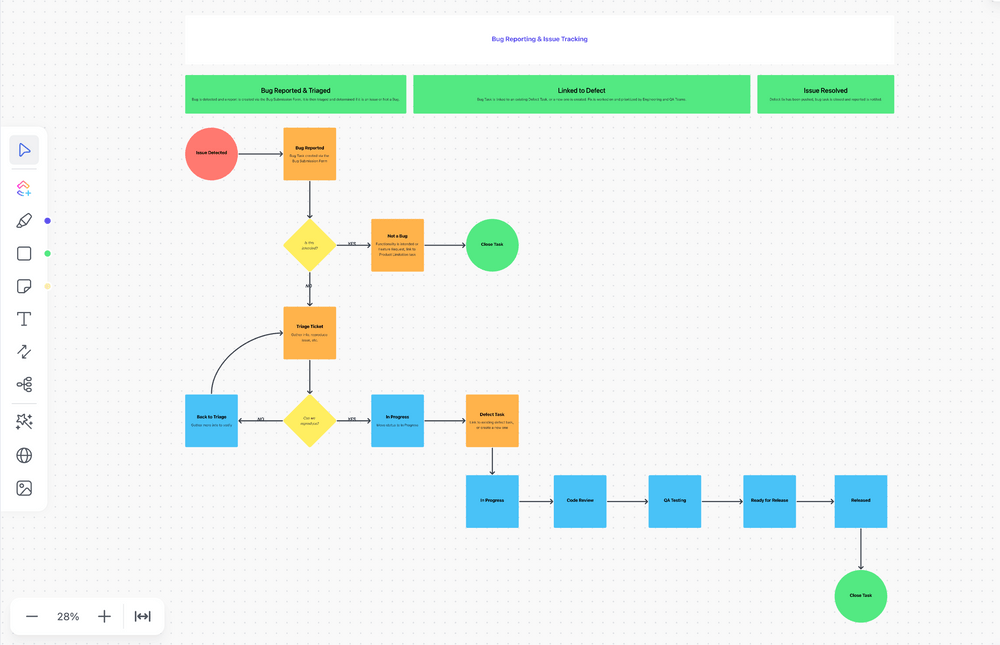
You can also use forms for software teams to report bugs, review code, and manage feature requests. Track the work of your development teams with ClickUp Dashboards, entailing time tracking and reporting tools.
The platform’s native AI content creation capabilities can transform the way you work. With ClickUp AI, you can accelerate your development strategies and documentation processes with readymade prompts.
Generate product ideas, deployment timelines, technical documents, and even roadmaps to optimize the code review and testing process. The AI tool can also help you brainstorm test cases for any product or system—all you have to do is feed it information about your database, and it will generate a schema to represent your data model in seconds.
Make your development journey smooth sailing with ClickUp integrations. Connect with GitLab, GitHub, and Bitbucket, or use Slack and Microsoft Teams integrations to facilitate efficient team communication.
*All listed prices refer to the yearly billing model
Measuring up to Bitbucket can be challenging, but our top 10 Bitbucket alternatives are well-equipped to get the job done. Once you zero in on your ideal tool, give ClickUp a try!
This all-in-one solution can streamline your code management tasks like no other, ensuring your team is focused and productive at all times! ❤️?
© 2025 ClickUp